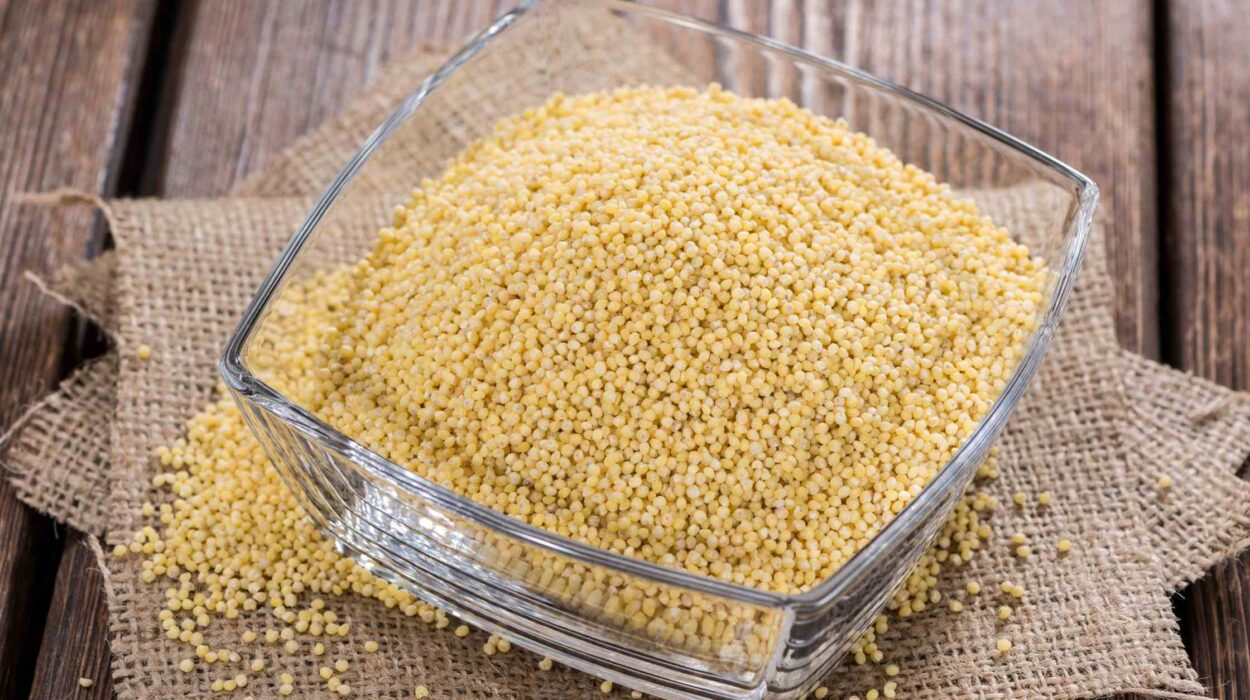In recent years, foxtail millet and little millet have gained popularity as a nutritious and versatile grain. Originating from ancient times, millet has been a staple in many cultures and is now making a comeback due to its numerous health benefits. While millet is commonly praised for its physical health benefits, such as being gluten-free and rich in essential nutrients, its positive impact on mental wellbeing often goes unnoticed. Let us understand how millet can contribute to your mental wellbeing, making it a valuable addition to your diet.
- Nutrient-rich composition: Millet is packed with essential vitamins and minerals that play a vital role in maintaining optimal brain function. It contains significant amounts of magnesium, which helps regulate neurotransmitter activity and promotes a calm and balanced mood. Additionally, millet is rich in B vitamins, including niacin, thiamin, and folate, which are essential for proper brain development and function.
- Stress reduction: Chronic stress can take a toll on mental health, leading to anxiety and depression. Millet contains high levels of serotonin, a neurotransmitter known for its mood-regulating properties. Serotonin helps to reduce stress levels and promotes feelings of relaxation and well-being. Including millet in your diet can help combat the negative effects of stress and improve your overall mental resilience. If you are planning to buy little millet online, skip the hassle and head straight to Mille Supergrain. Thier 100% whole grain and gluten-free millet will definitely become your go-to.
- Blood sugar regulation: Fluctuations in blood sugar levels can impact mood stability and contribute to feelings of irritability and fatigue. Millet has a low glycemic index, which means it releases glucose into the bloodstream slowly, preventing sudden spikes and crashes in blood sugar levels. By maintaining stable blood sugar levels, millet helps promote a more balanced and stable mood throughout the day.
- Gut-brain connection: Emerging research suggests a strong connection between the gut and brain health. The gut microbiota plays a crucial role in producing neurotransmitters and influencing mood and cognitive function. Millet is a rich source of dietary fiber, which acts as a prebiotic, nourishing the beneficial bacteria in your gut. A healthy gut flora promotes optimal mental health and helps reduce the risk of conditions like anxiety and depression.
- Enhanced cognitive function: The brain requires a steady supply of energy and nutrients to function optimally. Millet provides a good source of complex carbohydrates, which are slowly digested, providing a sustained release of energy to the brain. This steady energy supply supports cognitive function, memory, and concentration, ultimately enhancing overall mental performance.
- Promotes restful sleep: Quality sleep is essential for mental health and overall well-being. Millet contains an amino acid called tryptophan, which is a precursor to serotonin and melatonin. These neurotransmitters regulate sleep patterns and promote deep, restful sleep. Consuming millet can help improve sleep quality, ensuring you wake up refreshed and mentally rejuvenated.
- Versatility and enjoyment: A varied and enjoyable diet is vital for mental wellbeing. Millet is incredibly versatile and can be used in a variety of dishes, from breakfast porridges to savory pilafs. Experimenting with new recipes and incorporating millet into your meals can enhance your culinary experience and contribute to a positive relationship with food, positively impacting your mental wellbeing.
By recognizing and embracing the potential of millet, we unlock a natural and accessible means of nurturing our mental health. So, why not add this ancient grain to your culinary repertoire and savor the benefits it can bring to your overall wellbeing? Let millet be the nourishment that not only satisfies your body but also uplifts your mind, empowering you to lead a more fulfilling and mentally resilient life.


























